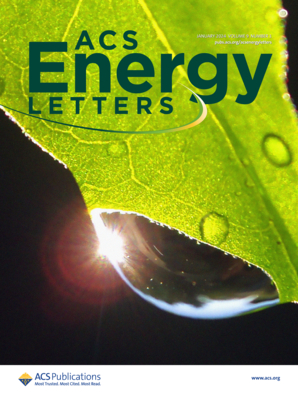Multiscale Defect Regulation of Cobalt-Free Layered Oxides for High-Energy and Long-Lasting Cathodes
IF 19.3
1区 材料科学
Q1 CHEMISTRY, PHYSICAL
引用次数: 0
Abstract
Reducing the reliance on cobalt in electrode chemistry is a promising step toward more sustainable and cost-effective lithium-ion batteries. However, the elimination of cobalt in layered oxides generally results in a significant decrease in capacity and/or a compromised cycle stability. Herein, we show that these intertwined issues of the cobaltless systems can be remedied by meticulously tailoring inherent defects induced at multiscale. It is demonstrated that a simple excess incorporation of lithium in the structure can effectively reduce the cation disorder and unexpectedly alter the microstructure forming routes, thereby enhancing electro-chemo-mechanical stabilities of layered cathodes. Our investigations reveal that this surplus lithium facilitates topotactic lithiation of precursors during calcination, rendering mechanically robust particles with fewer nanoporous defects and reduced cation disorder. Defect-regulated cobalt-free layered oxides successfully deliver a reversible capacity of 189 mAh g–1 at 0.5C with a retention of ∼85% after 300 cycles under commercial-level electrode loading.

求助全文
约1分钟内获得全文
求助全文
来源期刊

ACS Energy Letters
Energy-Renewable Energy, Sustainability and the Environment
CiteScore
31.20
自引率
5.00%
发文量
469
审稿时长
1 months
期刊介绍:
ACS Energy Letters is a monthly journal that publishes papers reporting new scientific advances in energy research. The journal focuses on topics that are of interest to scientists working in the fundamental and applied sciences. Rapid publication is a central criterion for acceptance, and the journal is known for its quick publication times, with an average of 4-6 weeks from submission to web publication in As Soon As Publishable format.
ACS Energy Letters is ranked as the number one journal in the Web of Science Electrochemistry category. It also ranks within the top 10 journals for Physical Chemistry, Energy & Fuels, and Nanoscience & Nanotechnology.
The journal offers several types of articles, including Letters, Energy Express, Perspectives, Reviews, Editorials, Viewpoints and Energy Focus. Additionally, authors have the option to submit videos that summarize or support the information presented in a Perspective or Review article, which can be highlighted on the journal's website. ACS Energy Letters is abstracted and indexed in Chemical Abstracts Service/SciFinder, EBSCO-summon, PubMed, Web of Science, Scopus and Portico.
 求助内容:
求助内容: 应助结果提醒方式:
应助结果提醒方式:


